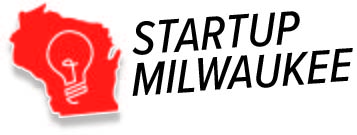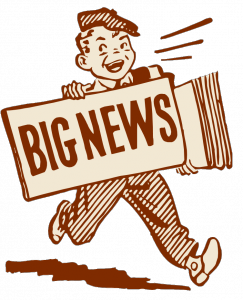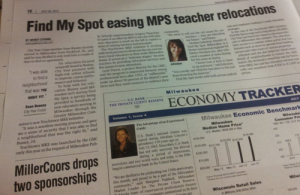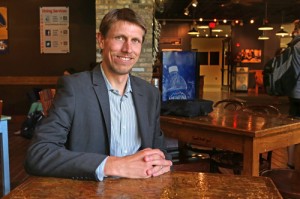Jon Hainstock is the co-founder of Milwaukee startups ZoomShift and Tailwind Creative. ZoomShift helps supervisors create, manage and share work schedules easily online. Employees can access their schedule from anywhere, trade shifts and request time off. With Zoomshift, communication is streamlined via email and text message notifications so everyone stays in the loop. Tailwind Creative assists brands increase leads and design their web presence. Jon is also a devoted husband and father.

At what point did you become interested in entrepreneurship?
There is a consistent pattern in my life of turning hobbies and interests into business, which began in my teens. In high school, I turned my love of music into a business that helped pay my way through college. Curiosity in photography and design helped develop my artistic eye which I later turned into a profitable photography and web design business.
The amount of legwork required in a startup has never been a major obstacle because my businesses have always come from my passion and interests. Even the tough beginnings don’t feel so much like work because I’m fueled by the excitement and challenge of learning something new.
After working with startups, as the director of marketing for 94labs—the tech seed accelerator that preceded Gener8tor—I saw value and a gap in the market for responsive web design and search engine optimization (SEO) services. My business partner, Ben Bartling, and I started Tailwind Creative, our digital marketing agency, to help fill that gap and fund our startup ideas.
Our current startup, ZoomShift, helps businesses schedule employees online and has always been intriguing to me because it solves a practical need for so many organizations.
What has been the largest difficulty you’ve faced as an entrepreneur?
The hardest part is learning to say no. I want to say yes to every opportunity, every event and every project; but experience has taught me that over-committing will cost me and my business in the long run. So over the years I’ve gotten better at saying no to the things that are not in-line with the overarching goals of my life.
Now that I have a young family, the challenge works both ways. On one hand, it’s easier to say no because of my commitment to carving out quality time with my wife and daughter. On the other hand, knowing that I have a family depending on me to support them can create a struggle to balance the hard work and hours that are required in a startup.
What makes Milwaukee a unique place to start a company?
Milwaukee offers a friendly, close-knit community. Startups, agencies and local organizations are very accessible, making it easy to connect with other entrepreneurs. Building relationships in the business community can make a significant difference for your company. What I love about Milwaukee (besides Alterra) is that people are so willing to meet up, and they genuinely care about the success of your business.
What metformin 500 mg piece of advice do you have for new startup companies?
Connect with people—not just online, but also face-to-face. The best opportunities I’ve encountered have come from informal meetings with good folk. You can learn something from everyone, from their successes and their failures. So be sure to take time each week to connect with someone new. For the cost of a cup of coffee or a beer and a half-hour of your time, a wealth of knowledge and expertise can be attained through casual dialog and asking the right questions.
What was the most interesting article your read this week?
I love articles that elicit a response. Check out An App Store Experiment by Stuart Hall. You’ll want to get into iOS development after you read his story.
Quick facts:











